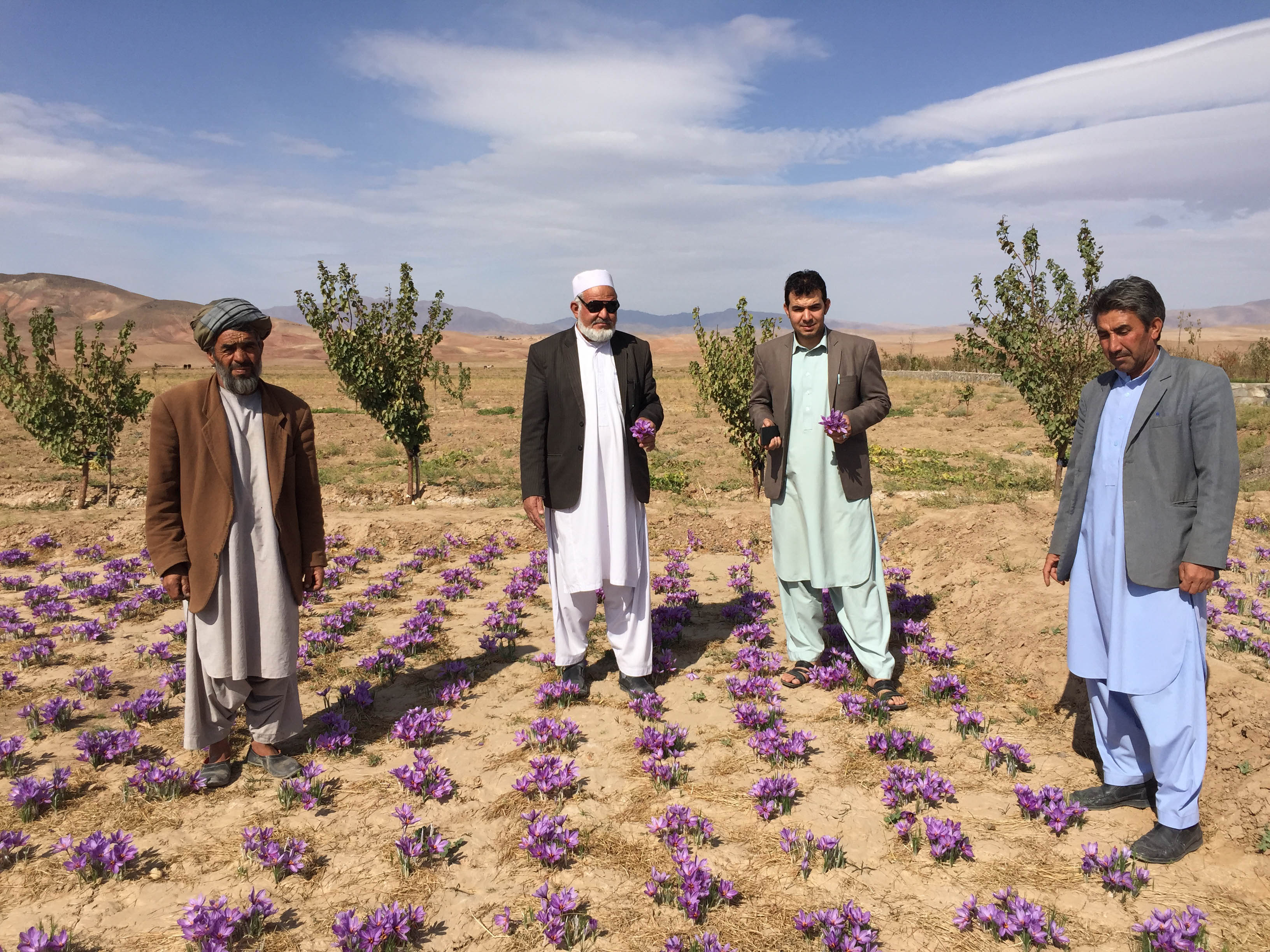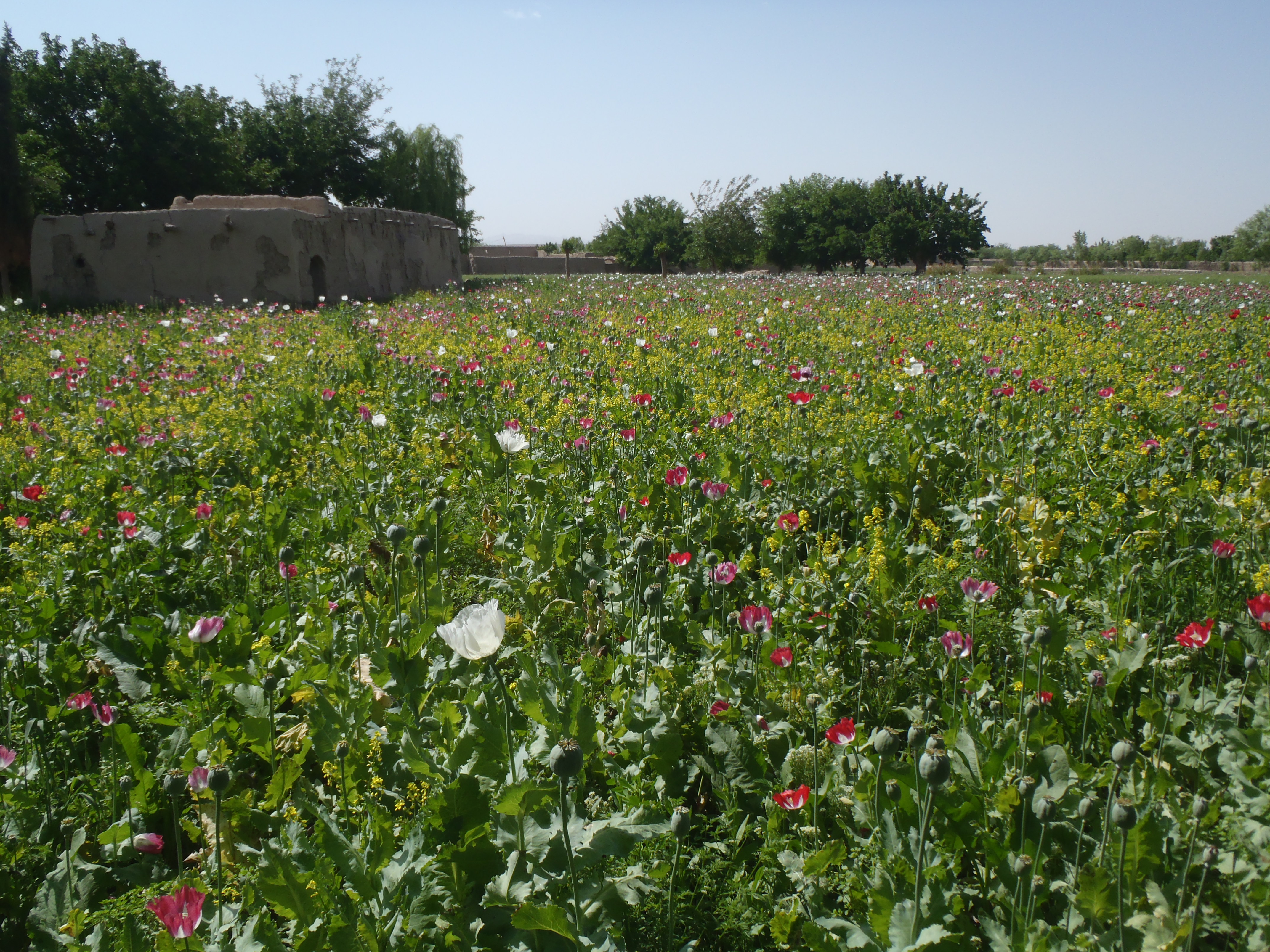“As a member of Afghanistan, I want to help my people to reduce growing narcotics - and saffron as you may know is an alternative crop.”
Shakoor Ehrarri works with Rumi in Herat, Afghanistan where he oversees the export of Afghan saffron grown by about eighty farmers. Rumi had two priorities when it started partnering with Shakoor and other Afghan farmers; find the best saffron, and create a positive impact on the communities they work with. Shakoor chose to work with Rumi because his highest priority is helping his people. It was very clear throughout our conversation that he feels a deep-rooted responsibility to his family and community - he's proud of Herat's history and culture.

Shakoor, third from the left, tells us why saffron is a good substitute for opium.
“Ten years ago whenever you talk about Ghoryan district, mostly you assume it is a place of narcotics, but now almost no one grows narcotics. It has been replaced by saffron. It’s a good opportunity for the farmers.” Why is saffron a better option for farmers? Shakoor explains that saffron is actually less work and the farmers can get more money from it. “It is a winter crop and the farmers don’t need to worry about water. There is maybe one crucial time you would need to water through the canals.” He tells me that the saffron flower, crocus sativus, requires so little water that rainfall provides plenty of hydration throughout the season. With poppies, on the other hand, farmers need to monitor the crop throughout the growing season and water more frequently. Once they are ready for harvesting it takes 3 to 4 months of work to collect sap from each poppy and complete the harvest. “You also have to keep it away from the government and you have to be afraid of punishment. With saffron the government will help you.”

Some regions of Afghanistan still primarily cultivate poppies, like Helmand Province, pictured here.
So why don’t all Afghan farmers grow saffron instead of opium? “Mostly, the reason the people are growing narcotics is that they don’t have any alternative crops.” Shakoor explains that not all regions are so perfectly suited to grow saffron. Additionally, when you already struggle to feed your family it's risky to spend everything you have on new crops and for some farmers that start up cost is prohibitive. They would have to spend time and money on soil preparation, fertilizer, labor, saffron crocus corms [bulbs] etc. He also tells me that sometimes the farmers don’t have much choice - that the global demand for opium essentially means that, “the work to grow narcotics is imposed on the farmers, otherwise they would grow an alternative crop.” This is why Rumi and Shakoor are tirelessly working to help farmers stay away from the opium supply chain in favor of a safer, hardier, more lucrative crop.

